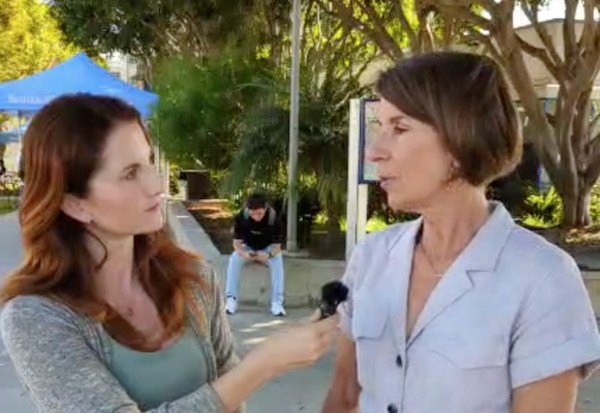The dramatically tectonic nature of the national Republican Party’s shift on immigration policy wasn’t really clear until Kentucky Sen. Rand Paul, long a favorite of the ultra-conservative Tea Party, in late March suddenly came out for a pathway to citizenship for some illegal immigrants – even though he doesn’t want it called anything like that.
In the very same speech to the U.S. Hispanic Chamber of Commerce, Paul – son of the Libertarian leader Ron Paul and himself a likely 2016 Republican presidential candidate – essentially denied the longstanding but unsupported claim that undocumented newcomers are “parasites” who cost state, local and national governments billions of dollars.
“I have never met a new immigrant looking for a free lunch,” Paul said. “We should be proud that so many want to come to America…We should make it a land of legal work, not black-market jobs, work and not welfare. Our land should be one of assimilation, not hiding in the shadows.”
Before Paul’s talk, remarks like those would far more likely have come from Democratic politicians – almost any Democratic politicians trying to cement Hispanic votes into that party’s column.
Especially in California, the Latino vote has been solidly Democratic since 1994, when Republican ex-Gov. Pete Wilson ran for reelection on a strident anti-illegal immigrant platform. The three years after that campaign saw more than 2.5 million legal immigrants become U.S. citizens and register as Democratic voters, shifting California from a swing state to one where only one Republican has been elected to a top-of-the-ticket job in the last 19 years.
But many California Republican activists apparently are not yet ready to admit – as the national party now has conceded – that they must change in order to survive.
After last year’s election, where GOP presidential nominee Mitt Romney advocated “self-deportation” for millions and campaigned with the originator of Arizona’s draconian stop-on-sight immigration law, Latino voters went Democratic by a margin of almost 3-1, providing President Obama almost all of his reelection edge.
Now, after years of apparently not noticing that Hispanics were becoming more and more active politically, the GOP at last has read the election returns.
The party’s national leaders also appear to be heeding an early-March Latino Decisions poll indicating that 63 percent of registered Hispanic voters are personally acquainted with someone who is undocumented. That figure is up 10 percent over two years ago. The survey also found that 43 percent of Latinos who voted for Obama would consider voting Republican if the GOP leads the way on immigration reform with a doable path to citizenship.
The same survey found one-fourth of all Latino voters know at least one immigrant who has faced detention or deportation.
Said Gary Segura, a Stanford University professor who helps operate the Latino Decisions polling firm, “That means for Latino voters, immigration is not just a policy debate – it’s personal.”
Taking note, the Republican National Committee issued a “growth and opportunity report” the day before Paul’s speech, saying “the nation’s demographic changes (show) how precarious our position has become. Unless Republicans are able to grow our appeal (among Hispanics), the changes tilt the playing field even more in the Democratic direction…If we want ethnic minority voters, we have to show our sincerity.”
But there’s considerable doubt many California Republicans are ready to buy into those themes or into adopting a kinder, gentler stance toward illegal immigration. True, the party’s new state chairman, Jim Brulte, says the GOP must recruit candidates who look and sound like the folks they seek to represent, adding that “the same conversations taking place in Washington are also going on in Sacramento.”
But the activists at the party’s core don’t yet seem ready to bend. One barometer is the California Republican Assembly, an all-volunteer group that sends large numbers of delegates to state GOP conventions where policies and platforms are adopted.
“The CRA has not changed its position,” says conservative blogger Stephen Frank, former president of the group, “What the Republican National Committee is trying to suggest is that we need a new policy that contradicts the law. That does not work.”
Frank also suggested that Democrats have “bought the votes” of Latinos by making it easier for them to come or stay here illegally.
“The American people deserve to have their laws respected and enforced,” he said.
That’s a bit discouraging for Californians who believe a strong and viable two-party system is essential for good government. Right now, Democrats so dominate the Legislature and other state offices that the GOP is all but irrelevant. If the state party proves unwilling to change, that’s probably how things will stay.













